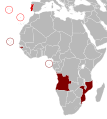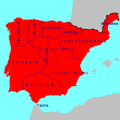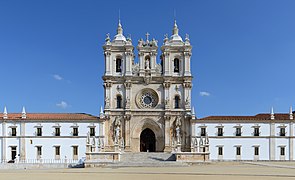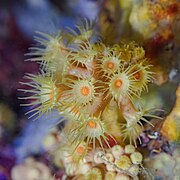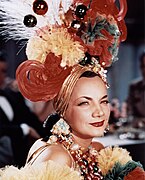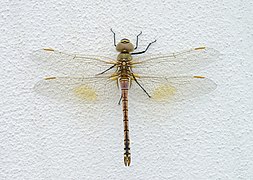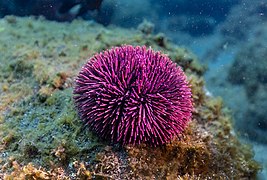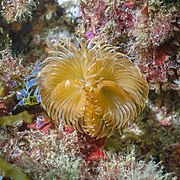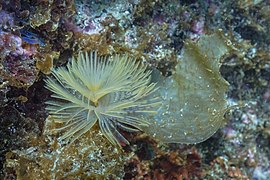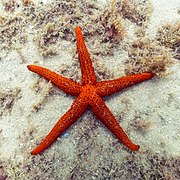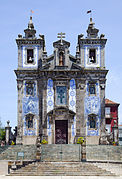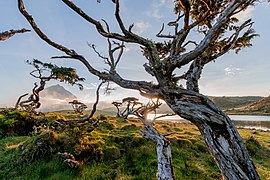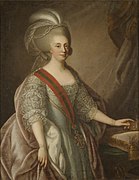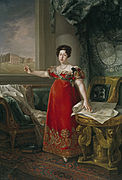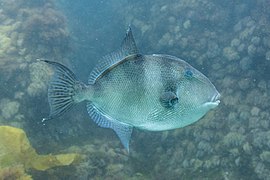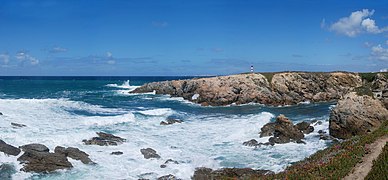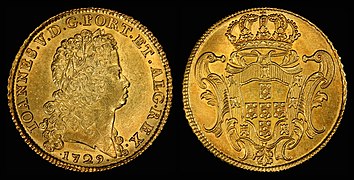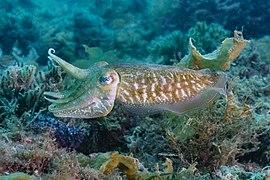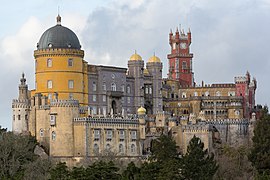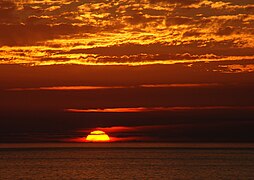Welcome to the Portugal portal  Portugal, officially the Portuguese Republic, is a country located on the Iberian Peninsula in Southwestern Europe, whose territory also includes the Macaronesian archipelagos of the Azores and Madeira. It features the westernmost point in continental Europe; its mainland west and south border with the North Atlantic Ocean; and in the north and east, the Portugal-Spain border, which constitutes the longest uninterrupted border line in the European Union. Its archipelagos form two autonomous regions with their own regional governments. On the mainland, the Alentejo region occupies the biggest area but is one of the least densely populated regions of Europe. Lisbon is the capital and largest city by population, and it is also the main spot for tourists alongside Porto, the Douro Valley, the Minho (mainly Braga and Guimarães) and Algarve regions, and Madeira. As one of the oldest countries in Europe, its territory has been continuously settled and fought over since prehistoric times. The territory was inhabited by the Celtic and Iberian peoples, such as the Lusitanians, the Gallaecians, the Celtici, the Turduli, and the Conii. These peoples had some commercial and cultural contact with the Phoenicians, ancient Greeks, and Carthaginians. It was later ruled by the Romans, followed by the invasions of Germanic peoples together with the Alans and later the Moors, who were eventually expelled during the Reconquista. First founded as a county within the Kingdom of León in 868, Portugal formally became an independent kingdom with the Treaty of Zamora in 1143. During the 15th and 16th centuries, Portugal led the Age of Discovery and established one of the longest-lived maritime and commercial empires, becoming one of the main economic and political powers of the time. By the early 19th century, events such as the 1755 Lisbon earthquake, the country's occupation during the Napoleonic Wars, and the resulting independence of Brazil in 1822 led to a marked decay of Portugal's prior opulence. This was followed by the civil war between liberal constitutionalists and conservative absolutists over royal succession from 1828 to 1834. The 1910 revolution deposed Portugal's monarchy and established the democratic but unstable Portuguese First Republic, later superseded by the authoritarian regimes of Ditadura Nacional (National Dictatorship) and Estado Novo (New State). Democracy was restored after the Carnation Revolution (1974), ending the Portuguese Colonial War and eventually losing its remaining colonial possessions. ( Full article...) Selected article - Alcobaça (Portuguese pronunciation: [alkuˈβasɐ] ) is a Portuguese city and municipality in the intermunicipal community Oeste and the region Oeste e Vale do Tejo, in the historical province of Estremadura, and in the Leiria District. The city grew along the valleys of the rivers Alcoa and Baça, from which it derives its name. The municipality population in 2011 was 56,693, in an area of 408.14 square kilometres (157.58 sq mi). The city proper has a population of 15,800 inhabitants. The city of Alcobaça became notable after the first king of Portugal, Afonso Henriques, decided to build a church to commemorate the Conquest of Santarém from the Moors in 1147. The church later evolved into the Monastery of Alcobaça, one of the most magnificent Gothic monuments in the country. In the church are the tombs of Pedro I of Portugal and his murdered mistress Inês de Castro. Over the centuries this monastery played an important role in shaping Portuguese culture. ( Full article...)
This is a
Featured article, which represents some of the best content on English Wikipedia.
 The Palace of Queluz ( Portuguese: Palácio de Queluz, Portuguese pronunciation: [kɛˈluʃ]) is an 18th-century palace located at Queluz, a city of the Sintra Municipality, in the Lisbon District, on the Portuguese Riviera. One of the last great Rococo buildings to be designed in Europe, the palace was conceived as a summer retreat for King Joseph I's brother, Peter of Braganza, later to become husband and king jure uxoris (as King Peter III) to his own niece, Queen Maria I. It eventually served as a discreet place of incarceration for Maria I, when she became afflicted by severe mental illness in the years following Peter III's death in 1786. Following the destruction of the Palace of Ajuda by fire in 1794, Queluz Palace became the official residence of the Portuguese Prince Regent John, and his family, and remained so until the royal family fled to the Portuguese colony of Brazil, following the French invasion of Portugal (1807). Work on the palace began in 1747 under Portuguese architect Mateus Vicente de Oliveira. Despite being far smaller, the palace is often referred to as the "Portuguese Versailles." From 1826, the palace slowly fell from favour with the Portuguese sovereigns. In 1908, it became the property of the state. Following a serious fire in 1934, which gutted one-third of the interior, the palace was extensively restored, and today is open to the public as a major tourist attraction. ( Full article...)
General imagesThe following are images from various Portugal-related articles on Wikipedia.
Selected quote -"The flies change but the shit is all the same"
Brito Camacho, politician of the Portuguese First Republic This is a
Good article, an article that meets a core set of high editorial standards.
António de Jesus (died c. 1722) was a Portuguese figure who flourished in late 17th and early 18th century Safavid Iran. Originally an Augustinian friar and missionary, he converted to Shia Islam during the early reign of Shah (King) Sultan Husayn ( r. 1694–1722) and took the name Aliqoli Jadid-ol-Eslam. He subsequently became an apologist of Shi'ism as well as a major polemicist against Christianity, Sufism, Judaism, Sunnism, philosophers and antinomians. In addition, after conversion, he served as an official interpreter (also known as a dragoman) at the royal court in Isfahan. Aliqoli Jadid-ol-Eslam was one of the late 17th century converts in Iran who "helped reaffirm the Majlesi brand of conservatism". ( Full article...)
Selected Biography - José Manuel Durão Barroso (Portuguese: [ʒuˈzɛ mɐˈnwɛl duˈɾɐ̃w bɐˈʁozu]; born 23 March 1956) is a Portuguese politician and law professor. He previously served as the 114th prime minister of Portugal and from 2004–2014 as the 11th president of the European Commission. He has been one of the revolving door cases at the EU, which received the most media attention because only two months after the cooling off period, Barroso accepted a position as "senior adviser " and "non-executive chairman" of Goldman Sachs International. and became subject of an ethics inquiry. ( Full article...)
Selected picture - Window of the
Convent of the Order of Christ, in
Tomar, a
Templar stronghold built by Dom
Gualdim Pais, provincial Master of the
Order of the Temple in
1160.
Did you know -
Portugal topicsPortugal lists
SubcategoriesRecognized content
Featured articles
Former featured articlesFeatured listsFormer featured listsGood articles
Former good articlesDid you know? articles
Featured pictures
Former featured portalsIn the News articles
Main page featured articles
Picture of the day pictures
Featured topicsNew articlesThis list was generated from
these rules. Questions and feedback
are always welcome! The search is being run daily with the most recent ~14 days of results. Note: Some articles may not be relevant to this project.
Rules | Match log | Results page (for watching) | Last updated: 2024-07-19 22:07 (UTC) Note: The list display can now be customized by each user. See List display personalization for details.
Things you can do
Related PortalsRelated WikiProjects
Associated WikimediaThe following Wikimedia Foundation sister projects provide more on this subject:
Discover Wikipedia using
portals |

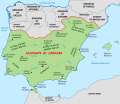



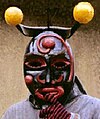









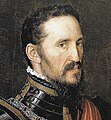



![Image 20Maios celebration in Madeira island [1] (from Culture of Portugal)](https://upload.wikimedia.org/wikipedia/commons/thumb/e/e1/2011-03-05_03-13_Madeira_045_Santana_%285543431418%29.jpg/120px-2011-03-05_03-13_Madeira_045_Santana_%285543431418%29.jpg)
